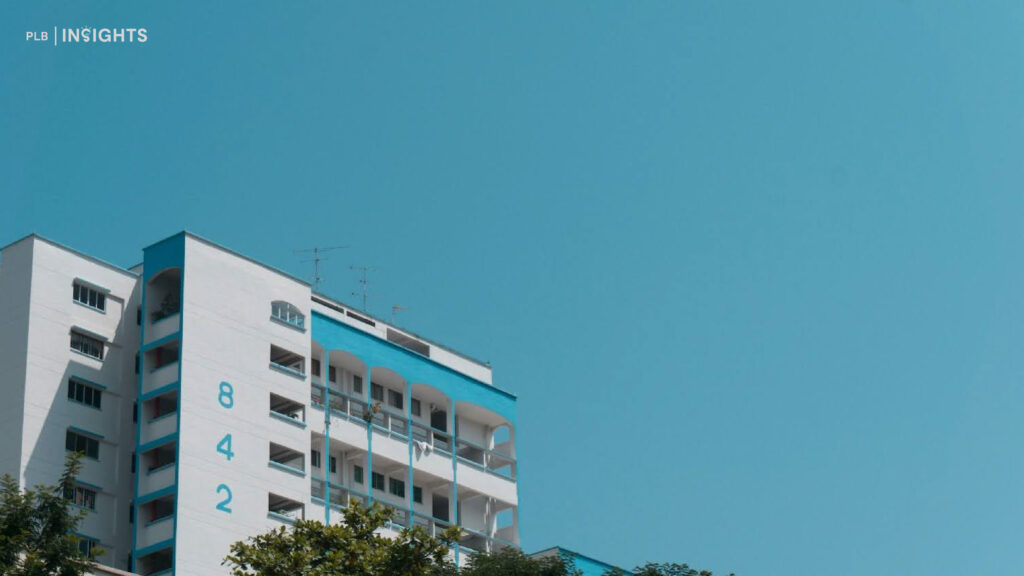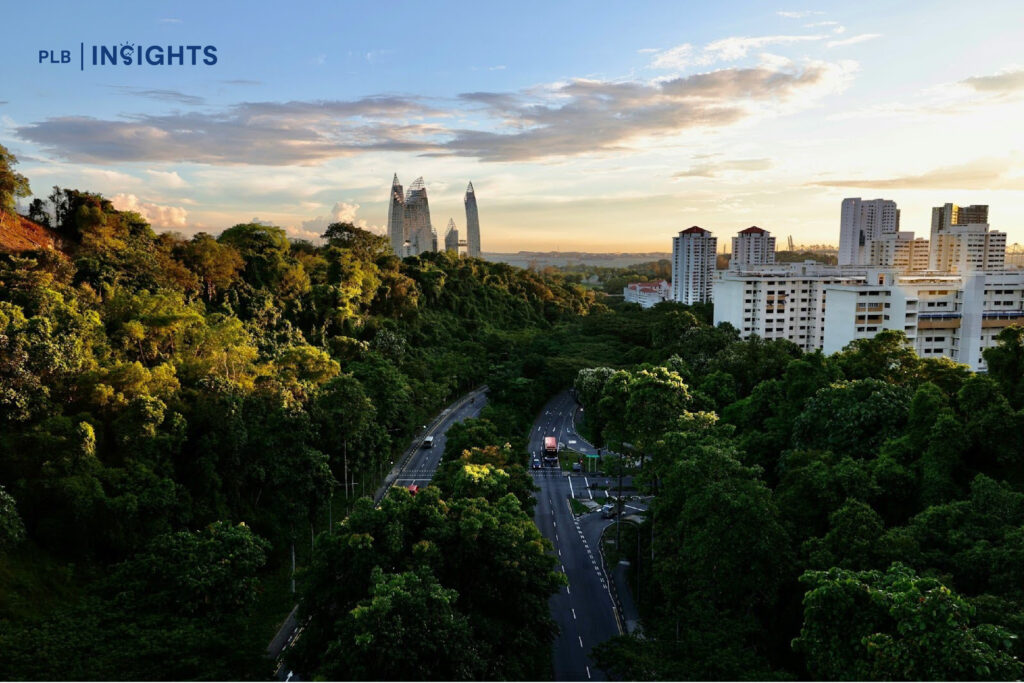
Navigating Singapore’s property market as a property owner can come with various decisions and factors to consider. One such decision lies in the question: Should I opt for short-term or long-term rental leases?
With the city’s ongoing appeal to tourists, international students, and expatriates, both options present enticing advantages. However, the property market’s legal landscape is rife with rules, regulations, and legalities that must be carefully considered. In this article, we are going to dissect the benefits of both short-term and long-term rental strategies for property owners, considering the unique regulations that govern each rental type, to help you make the process of renting out your property to a tenant as seamless as possible.
Understanding Rental Property Types in Singapore
Property owners who are looking to optimise their investments can benefit greatly from having a clear understanding of the two types of rental leases, based on their duration, as well as the regulations and rules associated with these rental leases.
Short Term Rentals
Short-term rentals typically refer to rental properties that are available for tenants to lease for under a year. Depending on the property type, these leases can last for a minimum of 6 months or 3 months. However, for tenants or guests looking to rent a unit for under 3 months, Singapore offers a range of serviced apartments for rent that are approved by the Urban Redevelopment Authority (URA) and can be found here.
Renting Out: HDB Flat vs Private Property Vs Serviced Apartment
The URA enforces strict regulations on short-term rentals in Singapore that vary for private properties, HDB flats, and serviced apartments. Let’s go over some of these.
Private non-landed properties can be rented out for a minimum of three months, and for less under specific conditions where they have approval from the URA. HDB units, on the other hand, have to be rented for at least six months.
Moreover, both property types can be rented out to foreigners, as long as they have the correct documents – student pass, employment pass, passports, etc – to reside, study or work in Singapore. Tourists visiting the city who do not want to stay in hotels have the option to stay in a serviced apartment for a minimum of 7 days. In the instance any of these regulations are violated, property owners may be fined up to $5,000. It is crucial to note that under circumstances where rules and regulations regarding leasing an HDB flat are not followed, HDB holds the right to compulsorily acquire the flats back.

Rentals Through Platforms Like Airbnb
Renting out properties through platforms like Airbnb can seem like an attractive opportunity for property owners looking to maximise their income. However, this approach comes with significant challenges, specifically regarding legal compliance and potential risks, as renting out apartments in this manner is illegal in Singapore .
Short-term rentals in Singapore are heavily regulated, and under the current laws, private residential properties can be rented for a minimum of 3 months. Property owners must be aware that failing to adhere to short-term rental regulations may lead to serious consequences including hefty fines and legal action from HDB and URA.
There have been several notable cases in Singapore where property owners faced serious issues after attempting to rent out their units on short-term rental platforms.
For instance, in 2023, a man was fined a total of $1.43 million for illegally providing short-term rentals on 19 different properties. Moreover, a total of 89 people have been fined and taken to court for hosting short-term rental guests since 2019, according to authorities earlier this year in July.
We previously shared an article on the impact of these types of illegal short-term rentals on the housing market and how online portals can navigate the potential risks and issues that they bring up. Feel free to check it out here.
Long Term Rentals
Long-term rentals are defined as leases that last for more than 6 months. These arrangements are highly common in Singapore, for both HDB flats and private non-landed properties. They provide a steady and reliable stream of income for property owners with tenants looking for a more stable living environment compared to short-term guests.
HDB vs Condominium Rentals
As HDB flats are largely meant for homeowners to reside in, it is important for homeowners to ensure potential tenants meet all of the eligibility requirements to rent the unit.
Some requirements for property owners who wish to rent out their HDB unit long-term include fulfilling the Minimum Occupation Period (MOP) of 5 years, holding Singaporean citizenship or permanent residence, obtaining a written approval by HDB, and ensuring that the number of tenants does not exceed the number allowed. Moreover, owners of HDB flats cannot rent for more than 3 years to tenants that are Singaporean or Malaysian citizens, and a maximum of 2 years for foreigners who are not Malaysian citizens. Finding the right tenant is crucial for property owners as they are responsible for any issues that arise as a result of tenants not being familiar with necessary rules and regulations.
Condominiums typically have fewer requirements and eligibility criteria for property owners and tenants to meet in comparison to HDB units, but are essential nonetheless. The common practice for a lease duration for condos in Singapore is a one year lease, up to a maximum of a two-year lease.

How Do Property Owners Benefit From Short-Term and Long-Term Rentals?
Both long-term and short-term rentals offer unique benefits for property owners. Choosing between short-term and long-term rentals in Singapore involve careful consideration of the various benefits tailored to the different goals property owners may have.
Advantages of Short-term Rentals
Higher Income Potential
Short-term rentals may be able to command higher rates compared to long-term rental leases, as they can be calculated on a weekly or nightly basis. This may still be the case for rentals that are under 6 months or 3 months. Property owners may be able to slightly increase monthly rates to account for the higher maintenance costs associated with frequent tenant turnover. Moreover, short-term rental properties located in prime areas of the city may also be able to command higher rental rates during peak seasons, periods of higher demand or major events.
Flexibility
Unlike long-term rentals, property owners have more flexibility for personal use of their property and to adapt to changing market conditions. During periods of low demand, they may be able to make use of their property for personal stays during vacancies, allowing them to enjoy their investment. This is particularly beneficial for those who may use the property occasionally for vacations or short visits. In the instance that property owners want to sell their unit, they can easily adjust their rental strategy without being legally tied to a long-term lease.
Diverse Clientele
Short-term rentals appeal to a wide range of guests, including expatriates and international students in Singapore. This diverse mix of clientele can enhance rental income and reduce the reliance on a specific pool of tenants. Moreover, in the instance that property owners are not happy with their tenants – especially those who are not respectful of rules and cannot comply with regulations effectively, property owners are not legally tied to tenants for a longer period of time. On the other hand, positive guest experiences can lead to leases being renewed by the same tenants and can help property owners find new tenants through recommendations and positive word-of-mouth.
Market Adaptability
Having short-term rental tenants means that property owners can easily adapt to changing market conditions without worrying about a long-term lease. If a particular neighbourhood becomes popular and performs better, owners can easily adapt by changing their strategies or rental rates in accordance with the market, ensuring they remain competitive.
Benefits of Renting Out Property Long-term
Stability With Income
Long-term rentals provide property owners with a stable stream of income through consistent cash flow every month. This can make it easier for property owners to budget and plan their finances. Regular monthly payments can enable property owners to take care of other property-related expenses or mortgage payments. Moreover, longer lease terms can help owners experience fewer vacancies, further contributing to a sense of stability and consistency in their income. This is especially valuable in fluctuating market conditions where short-term rentals may suffer from dips.
Lower Management Effort
Long-term rentals require less frequent tenant management. Once a tenant is in place and has settled in, owners will deal with fewer administrative tasks such as marketing the property or conducting screenings for potential tenants. Moreover, with long-term tenants, the need for constant cleaning and property maintenance will be reduced. Owners can also schedule repairs and maintenance more conveniently.
Legal Compliance and Risk Level
Long-term rentals typically involve fewer legal complications compared to short-term rentals, which face stringent regulations in Singapore. This reduces the risk of fines and penalties associated with non-compliance for property owners looking for long-term tenants. Moreover, long-term tenants reduce the risk of vacancies and also allow for a long-term relationship to be built, which can improve communications and make issues and conflicts less likely to arise.

What Is The Right Choice For You?
The choice between short-term and long-term rentals hinges on various factors, including the income potentials, management efforts, personal goals and preferences. Short-term rentals can provide lucrative returns and the option to adapt to changing trends and needs. This makes it an ideal choice for property owners that seek and thrive on flexibility and actively engage in managing their investments. This may also suit owners of property in prime locations and business districts, where demand may fluctuate more and landlords can capitalise on the rising quarter-on-quarter rental price trends to earn a higher rental income.
Long-term rentals, on the other hand, offer stability with income and reduced administrative burdens, making them a suitable choice for owners looking for a more hands-off investment. This strategy may appeal to those who prefer a consistent cash flow and are less inclined to deal with the frequent turnover associated with short-term rentals. It is particularly good for owners of HDB flats and private property that attract families or long-term residents looking for a community centred lifestyle.
Ultimately, taking the time to assess these factors, property owners can choose the rental strategy that maximises their investment potential, aligns with their personal and financial goals, and allows them to provide tenants with a seamless and satisfying rental experience.
Get In Touch With Us
Are you considering putting your property up for rent or sale? Feel free to reach out to us here. Our team of experienced consultants is ready to assist you at every stage of your property journey, addressing any questions or concerns you may have.
Until next time. See you soon.







